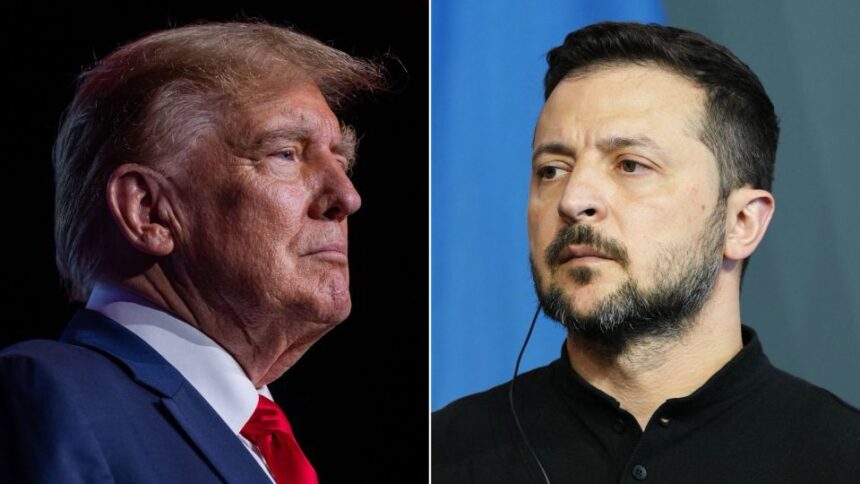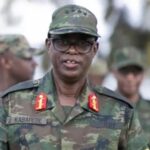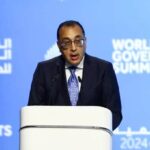In a controversial move, President Donald Trump has accused Ukraine of initiating the ongoing war with Russia, a statement that has drawn widespread criticism and raised concerns about the direction of U.S. foreign policy.
This assertion came on the heels of high-level peace talks between U.S. and Russian officials in Riyadh, Saudi Arabia. Notably, Ukrainian representatives were absent from these discussions, a decision that has been met with significant backlash from both Kyiv and international observers.
During a press conference, President Trump suggested that Ukrainian President Volodymyr Zelensky could have averted the conflict by negotiating with Moscow earlier. “Ukraine should have never started the war with Russia,” Trump stated, echoing narratives often promoted by the Kremlin.
In response, President Zelensky criticized the exclusion of Ukraine from the peace talks and refuted Trump’s claims. He emphasized that Ukraine has been defending its sovereignty against unprovoked Russian aggression and expressed concern over the U.S. engaging in negotiations without Ukrainian involvement.
The Riyadh talks, led by U.S. Secretary of State Marco Rubio and Russian Foreign Minister Sergey Lavrov, focused on establishing mechanisms for future cooperation and exploring potential resolutions to the conflict. Discussions included proposals for Ukraine to hold new elections, a suggestion that has been met with skepticism given the ongoing hostilities and the displacement of millions of Ukrainian citizens.

Critics argue that President Trump’s remarks and the exclusion of Ukraine from the negotiations undermine the nation’s sovereignty and could embolden Russian President Vladimir Putin. There are fears that such actions may lead to a peace settlement unfavorable to Ukraine, potentially compromising its territorial integrity and future aspirations, including NATO membership.
European leaders have also expressed concern over the U.S.’s unilateral approach. The absence of European allies from the talks has led to questions about the future of transatlantic relations and the collective response to Russian aggression. Some European officials have proposed deploying peacekeeping forces to Ukraine post-conflict, a move President Trump has cautioned against, warning it could escalate into a broader conflict. 
As the situation develops, the international community remains watchful of the implications of these diplomatic engagements. The path to a peaceful resolution in Ukraine is fraught with challenges, and the strategies employed by global leaders will significantly impact the region’s stability and the broader geopolitical landscape.







